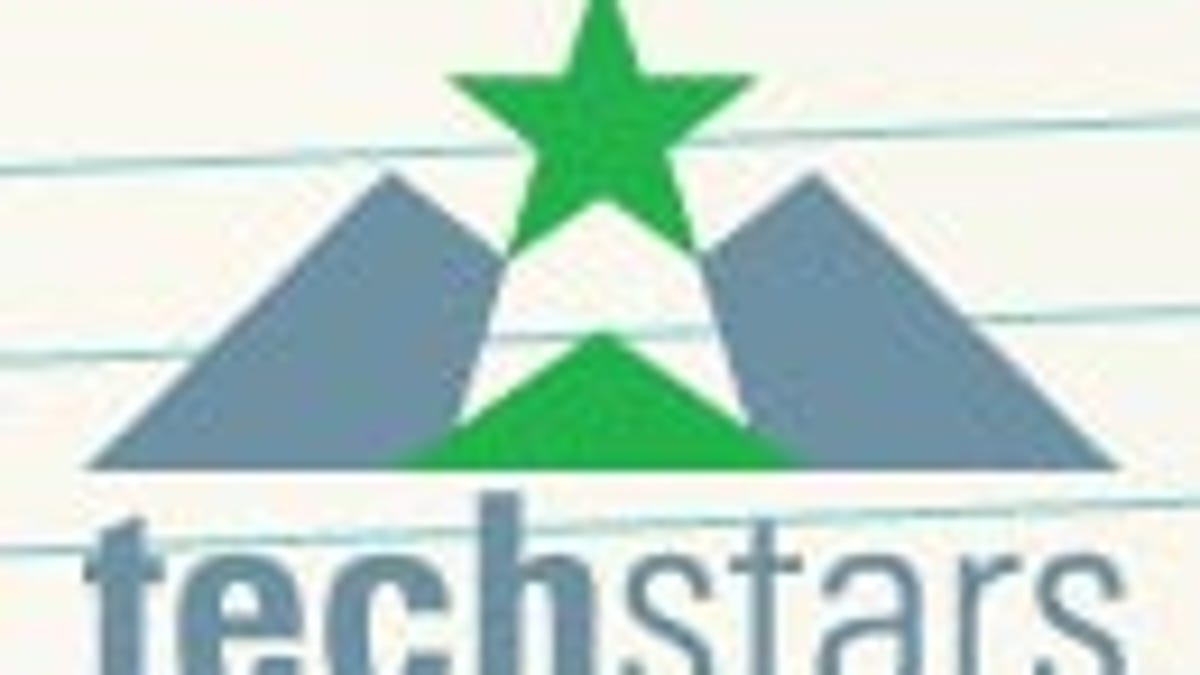TechStars' young entrepreneurs head to Silicon Valley
The Colorado-based incubator's annual Investor Day brought 13 fledgling companies in front of several dozen investors to whom they were pitching requests for mentoring and seed funding.

MOUNTAIN VIEW, Calif.--Among the tech industry's up-and-coming, ad-supported business models appear to be out of fashion. Or at least that appears to be the trend among the companies that just graduated from the annual Boulder, Colo.-based incubator program TechStars. Representatives from some of those start-ups convened for an "Investor Day" at a Microsoft-owned auditorium here on Wednesday morning.
Founded by venture capitalists David Cohen and Brad Feld three years ago, TechStars accepts a total of 20 participants in both Boulder and Boston for a summer of development, seminars with industry veterans, and a small amount of seed funding. Thirteen of those 20 companies were advanced enough to earn spots at Wednesday's Investor Day, in which they offered short presentations to more than 100 members of the venture capital community who are actively interested in making early-stage investments.
And not a single one was offering a strictly advertising-supported business model, something that would've been pretty unthinkable not so long ago.
"(These companies) are the future of the entrepreneurial ecosystem as it evolves," Feld said to the audience midway through the morning. "We think these are all very fundable companies. In fact, most of the companies that you're seeing today are either well down the path of closing financing, or have closed financing, but for many of them there's still room."
Unlike the TechCrunch50 start-up pitch event earlier this month, none of these companies were actually launching out of a total stealth mode. Some had already experienced a sort of PR blitz--travelogue site Everlater generated some buzz when people were using it to map their plans for airline JetBlue's "All You Can Jet" promotion, and unofficial Twitter app store OneForty experienced the usual tech-blog mayhem earlier this week when it launched in private alpha and set off a flurry among the early-adopter crowd as people scrambled for invites.
But like TechCrunch50's array of start-ups, most of the TechStars lineup had productivity on the brain. Gaming and entertainment companies were limited to TakeComics, which aims to bring an iTunes-inspired business model to the digitization of comic books, and AccelGolf, a decidedly hardcore set of mobile and Web-based applications for avid golfers.
Business-focused applications were far more commonplace. Retel Technologies has built security-camera software enhanced with data and analytics, NextBigSound tabulates bands and musicians' popularity on social-media and music sites to roll up into a product sold to industry professionals; SendGrid offers e-mail marketing services to businesses at a variety of price points; and HaveMyShift, built by a former Starbucks barista, offers an exchange for hourly employees at major chain stores to swap and pick up shifts.
The companies were a mixed bag, and so were the entrepreneurs behind them: many fell into the young-entrepreneur stereotype of puppy-faced young men who could use a haircut along with that seed funding, but others strayed from the norm. OneForty's Laura Fitton is already a respected Twitter consultant; Raj Aggarwal, CEO of mobile data start-up Localytics, is an Apple veteran who had helped construct the original business model for the iPhone; and the founders of mobile contact management company Sensobi professed to earlier entrepreneurial experience in the chocolate industry.
Of the entire lineup, Everlater--founded by two childhood friends who had quit their Wall Street jobs to found the company--offered the closest thing to the typical ad-supported consumer model that was so ubiquitous in Web 2.0's heyday a few years ago, and even still, the founders plan to sell customized scrapbook and postcard products as well as offer branded packages to travel companies hoping to get their name out there.
A few other TechStars presenters said they hoped to use a free, ad-supported model as an entry point for the subscription services where they plan to make more significant money: video-based language learning system LangoLab, for example, hopes to strike deals with online video hubs like Hulu and then charge for access to lessons based around that "premium" content, and open-source forum software Vanilla charges for the hosted version of its product.
Granted, these business models still have their pratfalls: namely, the fact that they actually have to find individuals or companies who are willing to pay, something that often requires the formation of a solid marketing or sales department before profits can start to roll in. That was why many of them said they were looking to close early-stage funding rounds soon.
But those solicitations for funding were not lofty. Almost all of the TechStars presentations provided a target amount that they were seeking for their angel or Series A rounds (a few had closed rounds already), and the vast majority were south of $1 million--far south, in some cases.

